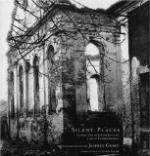“I will live five days,” went on Sam, “perhaps six. I will try to live. If you should come back in that time,—with meat—the caribou—you understand.” His voice trailed away, unwilling to mock the face of probability with such a chance.
Dick nodded again. He had nothing to say. He wrung the old man’s hand and turned away.
Mack thrust his nose forward. They started. Sam, left alone, rolled himself again in his thick coverings under the snow, which would protect him from the night cold. There he would lie absolutely motionless, hoarding the drops of his life. From time to time, at long intervals, he would taste the pemmican. And characteristically enough, his regret, his sorrow, was, not that he must be left to perish, not even that he must acknowledge himself beaten, but that he was deprived of the chance for this last desperate dash before death stooped.
When Dick stepped out on the trail, May-may-gwan followed. After a moment he took cognisance of the crunch of her snow-shoes behind him. He turned and curtly ordered her back. She persisted. Again he turned, his face nervous with all the strength he had summoned for the final effort, shouting at her hoarsely, laying on her the anger of his command. She seemed not to hear him. He raised his fist and beat her, hitting her again and again, finally reaching her face. She went down silently, without even a moan. But when he stared back again, after the next dozen steps, she had risen and was still tottering on along the Trail.
He threw his hands up with a gesture of abandonment. Then without a word, grim and terrible, he put his head down and started.
He never looked back. Madness held him. Finesse, saving, the crafty utilising of small advantages had had their day. It was the moment for brute strength. All day he swung on in a swirl of snow, tireless. The landscape swam about him, the white glare searched out the inmost painful recesses of his brain. He knew enough to keep his eyes shut most of the time, trusting to Mack. At noon he divided accurately the entire food supply with the animal. At night he fasted. The two, man and dog, slept huddled close together for the sake of the warmth. At midnight the girl crept in broken and exhausted.
The next day Dick was as wonderful. A man strong in meat could not have travelled so. The light snow whirled behind him in a cloud. The wind of his going strained the capote from his emaciated face. So, in the nature of the man, he would go until the end. Then he would give out all at once, would fall from full life to complete dissolution of forces. Behind him, pitifully remote, pitifully bent, struggling futilely, obsessed by a mania as strong as that of these madmen who persisted even beyond the end of all things, was the figure of the girl. She could not stand upright, she could not breathe, yet she, too, followed the Trail, that dread symbol of so many hopes and ideals and despairs. Dick did not notice her, did not remember her existence, any more than he remembered the existence of Sam Bolton, of trees, of streams, of summer and warm winds, of the world, of the devil, of God, of himself.




